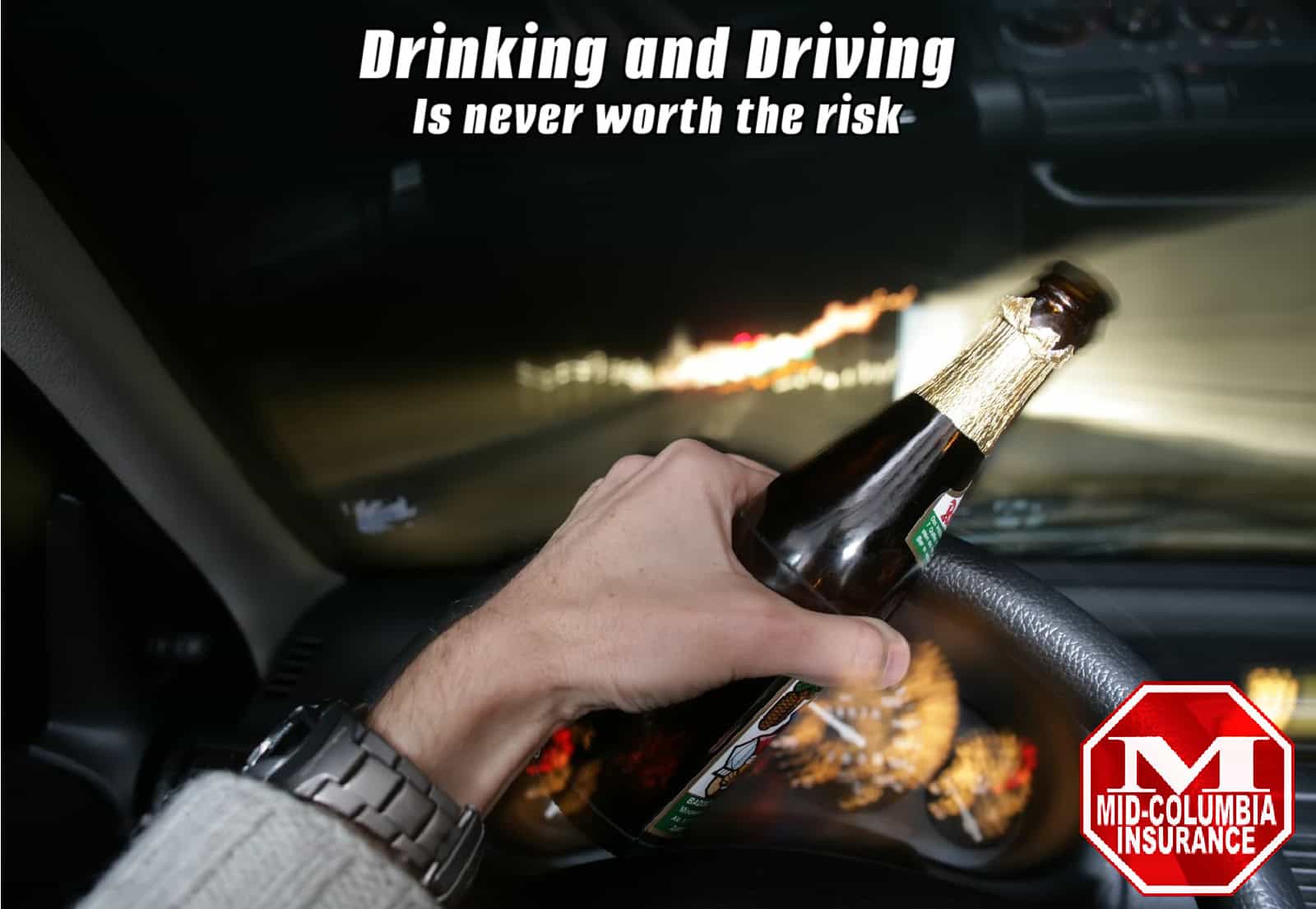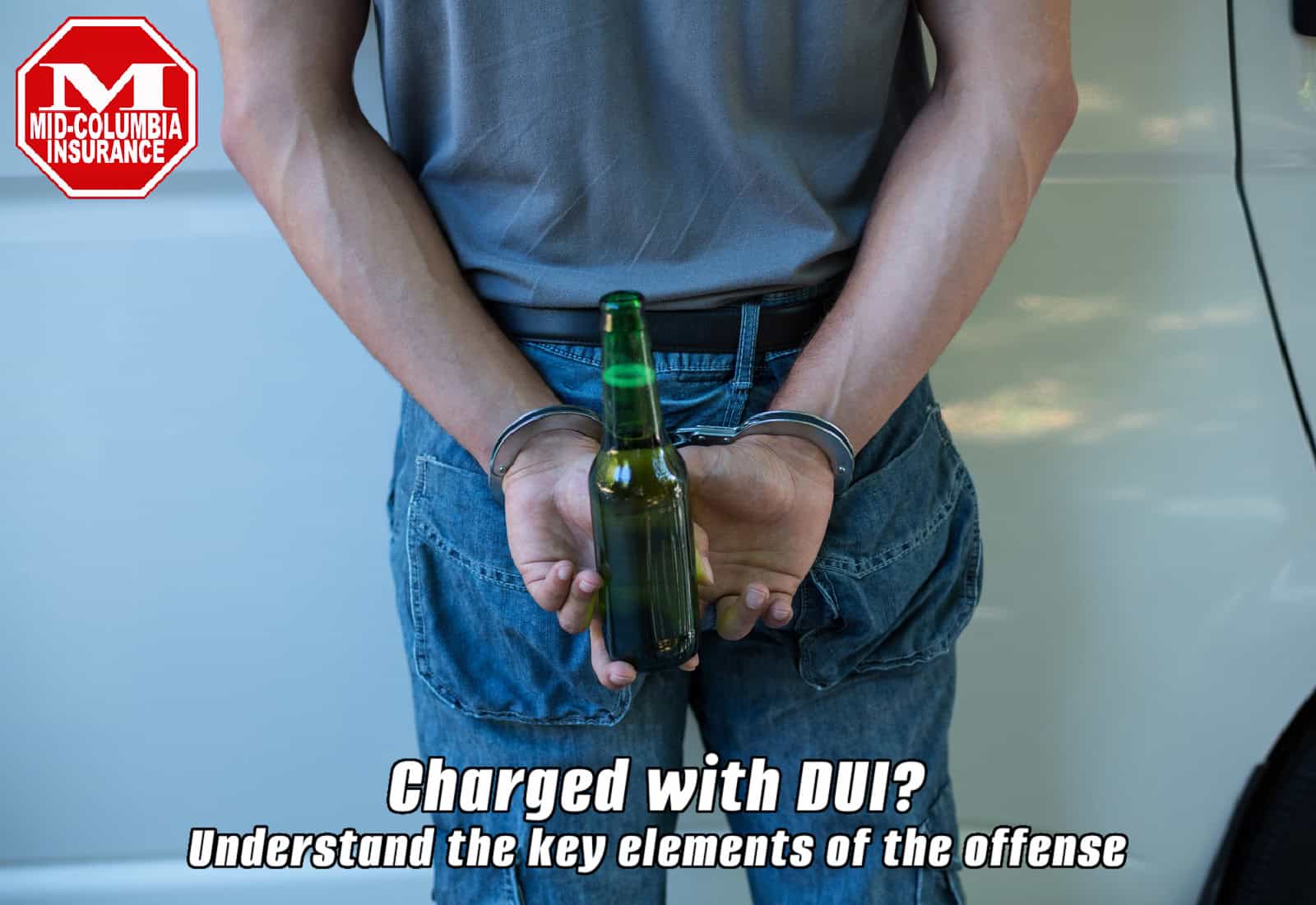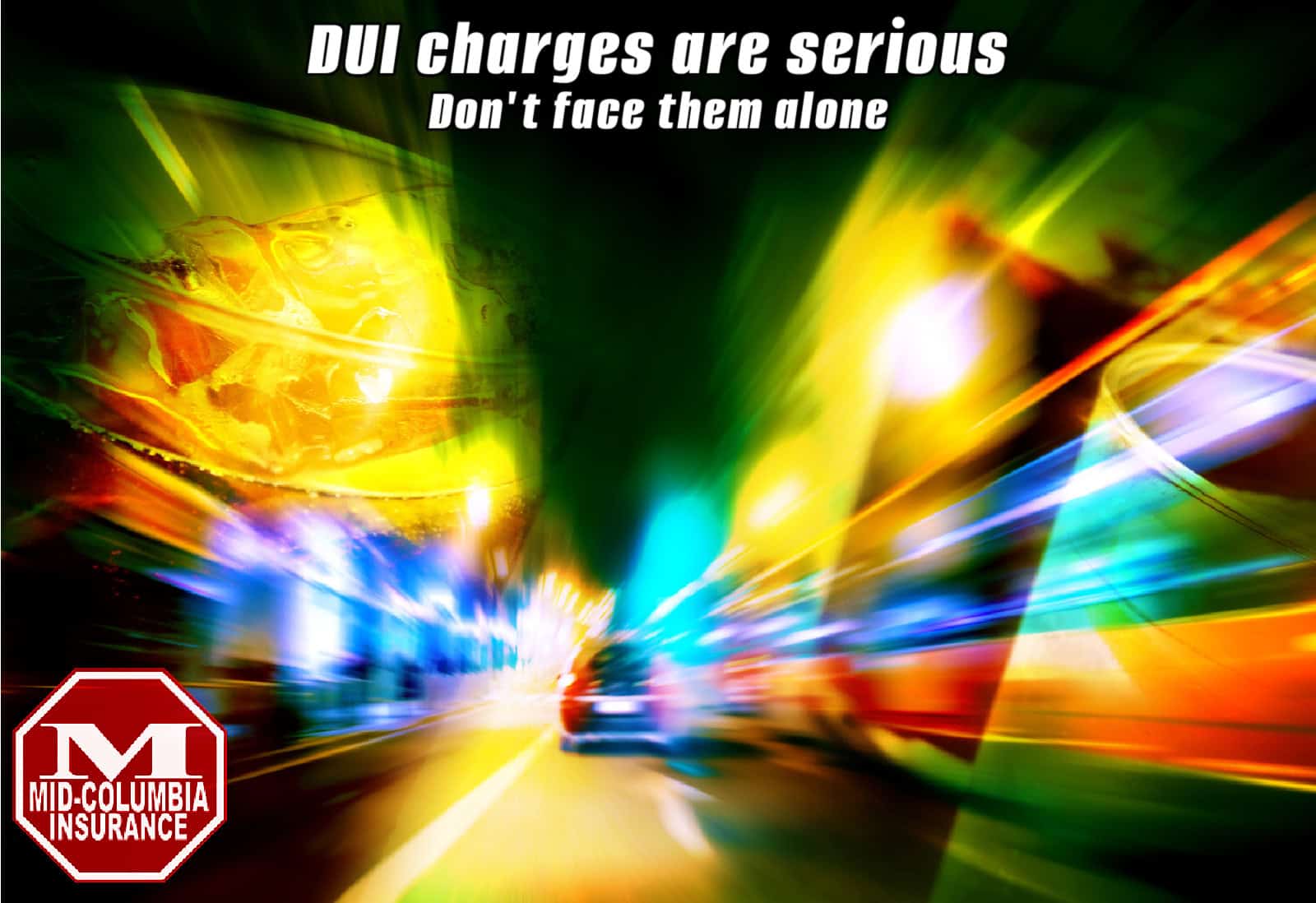Anatomy of a DUI: What You Need to Know
What is Driving Under the Influence (DUI)?
Driving Under the Influence (DUI) is the crime of operating a vehicle while impaired by alcohol and/or drugs. In Washington State, a person can be charged with DUI if they drive a vehicle within the state while under the influence of or affected by intoxicating liquor, cannabis, or any drug, or if they drive with a blood alcohol concentration (BAC) of 0.08% or higher within two hours after driving.
Gary Paulson, owner of Mid-Columbia Insurance in Kennewick, WA, reminds drivers that “a DUI charge can have serious legal, financial and personal consequences. It’s crucial to understand the law and your rights if you find yourself in this situation.” Mid-Columbia Insurance represents several top insurance carriers including National General, The General, Progressive, Dairyland, and Bristol West, who can help drivers find SR-22 insurance if required after a DUI conviction.
What are the Key Elements of a DUI Offense?
To convict someone of DUI, prosecutors must prove certain essential elements beyond a reasonable doubt:
- Driving or Physical Control:
- The accused was driving a vehicle or in actual physical control of one
- Vehicle is defined broadly and includes cars, trucks, motorcycles, boats, etc.
- Physical control can include situations where the driver is asleep or passed out in a parked vehicle
- Under the Influence of Alcohol and/or Drugs:
- The driver was impaired by alcohol, drugs, or a combination of the two while driving
- Impairment is defined as the ability to drive being lessened in any appreciable degree
- Impairment can be proven through officer observations, field sobriety tests, or chemical tests
- Implied Consent to Testing:
- By driving on Washington roads, drivers implicitly consent to breath or blood testing if arrested for DUI
- Refusal to submit to testing leads to administrative license suspension
- The refusal can also be used as evidence of guilt at trial
- Per Se BAC or THC Limit:
- Prosecutors can prove a “per se” DUI if the driver had a BAC of 0.08% or higher within two hours of driving
- For marijuana DUIs, the per se limit is 5 ng/mL of THC in the blood
- The per se element is an alternate way to prove DUI, focusing on chemical test results rather than impairment
- It is a strict liability standard, meaning impairment need not be separately proven
- Jurisdiction of the Court:
- The DUI must have occurred within the geographic jurisdiction of the court
- The court must also have subject matter jurisdiction over the level of offense (misdemeanor or felony)
These elements form the framework of the crime of driving under the influence in Washington. The prosecution bears the burden of proving each element beyond a reasonable doubt to secure a conviction. The “per se” prong provides an alternate route to prove DUI based on blood alcohol or THC concentration alone, while the other elements focus on the driver’s actual impairment, control of the vehicle, and the testing procedures used in the case.
What Our Customers Are Saying About Us
How Do Police Investigate Suspected DUIs?
When police pull over a driver suspected of DUI, they look for signs of impairment like:
- Slurred speech
- Bloodshot eyes
- Odor of alcohol or marijuana
- Open containers in the vehicle
- Erratic or dangerous driving
Officers then conduct a Standardized Field Sobriety Test battery to assess impairment:
| Test | Clues |
|---|---|
| Horizontal Gaze Nystagmus (HGN) | Lack of smooth pursuit, distinct nystagmus at max deviation, onset before 45 degrees |
| Walk and Turn (WAT) | Can’t balance during instructions, starts too soon, stops while walking, misses heel-toe, steps off line, wrong number of steps, improper turn |
| One Leg Stand (OLS) | Sways, uses arms for balance, hops, puts foot down |
If the driver shows signs of impairment, they are arrested and asked to take a breath test on an evidential breathalyzer or a blood draw. These chemical tests measure the driver’s BAC or THC levels to determine if they are over the per se legal limit. Refusal to take a breath or blood test leads to a license suspension and can be used as evidence of guilt at trial.
What Defenses Can Be Raised to a DUI Charge?
A skilled DUI attorney can raise several defenses to fight the charges, including:
- Lack of probable cause for the traffic stop: Police can’t pull someone over without reasonable suspicion of a traffic violation or criminal activity. If the stop was unlawful, the DUI case may be dismissed.
- Inaccurate field sobriety tests: Standardized tests must be conducted in strict compliance with NHTSA protocols. Deviations from the procedure, or alternative non-validated tests, can make the results inadmissible.
- Rising blood alcohol: If a driver’s BAC was below 0.08% when driving but rose above the limit by the time of testing, they may have an affirmative defense if they prove the alcohol was consumed after driving.
- Improper chemical testing: Breath and blood testing must follow stringent state protocols for calibration, administration, and interpretation. Violations of these rules can invalidate the results.
- Involuntary intoxication: In rare cases, a driver may argue they became intoxicated involuntarily by unknowingly ingesting a spiked drink or medication that interacted badly with alcohol. The burden is on the defense to prove this.
However, it’s important to note that voluntary intoxication is never a defense to DUI in Washington. Even if a driver didn’t feel “drunk” or thought they were okay to drive, they can still be convicted if the evidence shows they were impaired or over the limit.
What are the Penalties for a DUI Conviction?
The penalties for a DUI depend on the driver’s prior criminal history and the specific facts:
- First-time DUI: Misdemeanor punishable by 1 day to 1 year in jail, $350 to $5000 fine, 90 day to 1 year license suspension, SR-22 insurance requirement, and possible ignition interlock device (IID).
- Second DUI within 7 years: Misdemeanor with 30 days to 1 year in jail, $500 to $5000 fine, 2 year license revocation, SR-22 for 3 years, and mandatory IID.
- Third DUI within 7 years: Felony with 90 days to 5 years in prison, $1000 to $10,000 fine, 3 year license revocation, SR-22 for 5 years, and mandatory IID.
Aggravating factors like a very high BAC over 0.15%, child passenger, or vehicular assault can substantially increase these penalties. All Washington DUI convictions also require completion of a drug and alcohol evaluation and court-ordered treatment or education programs.
How Can a DUI Impact Car Insurance Rates?
A DUI conviction will significantly impact a driver’s auto insurance premiums, as they are now considered a high-risk driver. Some key things to know:
- SR-22 requirement: After a DUI, drivers must file an SR-22 form proving they carry liability insurance meeting state minimum limits. The SR-22 must be maintained for 3 to 5 years.
- Premium increases: DUI offenders often see their rates double or even triple after a conviction. The exact increase varies based on the specific offense, the carrier, and other individual rating factors.
- Nonrenewal: Some insurers will cancel or non-renew a policy after a DUI. The driver will then need to find coverage with a carrier that specializes in high-risk coverage, like Bristol West, Dairyland, or The General.
- Duration of impact: A DUI usually affects insurance rates for 3 to 5 years, as long as the SR-22 is required. However, the conviction remains on the driver’s record longer and can impact rates for up to 10 years.
Mid-Columbia Insurance works with several insurance partners to help drivers find affordable coverage even after a DUI. With access to both standard and high-risk carriers, they can compare quotes to find the best policy for each client’s needs and budget.
Can You Get a DUI on Private Property in Washington?
Yes, in Washington you can be arrested and convicted for DUI even if you were driving on private property at the time. The DUI statute applies on publicly maintained roads as well as “elsewhere throughout the state,” including private lots and driveways.
The only narrow exception is for driving on private property entirely closed to public access, like a fenced farm or rural homestead not open to or leading to any public road. But in general, drivers should never assume it’s legally okay to drive impaired just because they aren’t on a public street. If caught, they can still face criminal charges and administrative penalties.
In conclusion, a DUI arrest is a very serious matter in Washington with significant legal, financial, and personal consequences. If you or a loved one are facing DUI charges, it’s crucial to understand the law, the potential penalties, and your defense options. Consult with an experienced DUI attorney to protect your rights and driving privileges.
Mid-Columbia Insurance
– Your Trusted SR-22 Insurance Agent
And if you need SR-22 insurance or a new policy after a DUI, contact the experts at Mid-Columbia Insurance. With access to both standard and high-risk insurance markets, we can help you find the most affordable rates even with a DUI on your record.
Contact Mid-Columbia Insurance today to discuss your auto insurance needs. We’ll compare rates and coverages from multiple insurers to craft a DUI insurance policy that fits your needs and budget. Don’t wait until it’s too late. Call us for a free quote and expert guidance to keep you cruising down the road with confidence. Request an auto quote from one of our independent insurance agent professionals today by calling (509)783-5600 or click “Get a Quote”.
The insurance you want — At a price you can afford.
Frequently Asked Questions
| Question | Answer |
|---|---|
| Is a DUI a felony in Washington State? | In Washington, a DUI is typically a gross misdemeanor offense. However, it can be charged as a felony if the driver has had 3 or more prior DUI convictions within the past 10 years, has previously been convicted of vehicular assault or vehicular homicide while under the influence, or was driving with a suspended or revoked license due to a prior DUI. |
| Can you get a DUI for prescription drugs in Washington? | Yes, in Washington you can be charged with DUI for driving under the influence of legally prescribed medications if they impair your ability to drive safely. It’s not a defense that the drugs were prescribed by a doctor. If the medication has side effects that can impact driving, it’s the driver’s responsibility not to get behind the wheel. |
| How long does a DUI stay on your record in Washington? | A DUI conviction will remain on your criminal record essentially forever in Washington. It may be possible to vacate the conviction after 10 years, but certain conditions must be met. For sentencing purposes, a prior DUI is considered a “prior offense” if it occurred within 7 years of the current offense for misdemeanors, or 10 years for felonies. |
| What happens if you get a DUI under 21 in Washington? | Drivers under 21 are subject to a zero tolerance policy in Washington. If an underage driver has a BAC of 0.02% or higher, they can be charged with an underage DUI. The penalties include license suspension for 90 days to 2 years, a fine of $500 to $2,000, and 2 days to 364 days in jail. The driver may also face separate penalties for underage drinking. |
| Will I have to get an ignition interlock device after a DUI? | Yes, under Washington’s ignition interlock law, anyone convicted of DUI must have an ignition interlock device (IID) installed on their vehicle to regain driving privileges. The court can waive the requirement for first-time offenders with a BAC below 0.15% if they didn’t refuse a chemical test. The IID must be maintained for a minimum of 1 year for a first offense, 5 years for a second offense, and 10 years for a third or subsequent offense. |
| How much does a DUI lawyer cost in Washington? | The cost of a DUI lawyer in Washington can vary widely depending on the attorney’s experience, the complexity of the case, and whether the case goes to trial. On average, DUI legal fees range from around $2,500 for a simple first-offense plea deal to $10,000 or more for repeat offenses or cases that require scientific expert testimony. Many attorneys offer payment plans or accept credit cards. Public defender services may be available for indigent defendants. |
| What is the lookback period for DUIs in Washington? | In Washington, the lookback period for DUIs is 7 years for misdemeanor offenses and 10 years for felony DUIs. This means that any prior DUI convictions within that timeframe will count as prior offenses for sentencing purposes on a new DUI charge. The lookback period is measured from arrest date to arrest date, not by conviction dates. |
| Can I drive for Uber or Lyft with a DUI in Washington? | No, both Uber and Lyft have policies prohibiting drivers from having any major driving violations like a DUI on their record within the past 7 years. If you have a DUI conviction within that timeframe, you will not pass the background check to become a rideshare driver. The only exception is if you can get the DUI conviction vacated from your record, but that is only possible for certain offenders after 10 years in Washington. |




